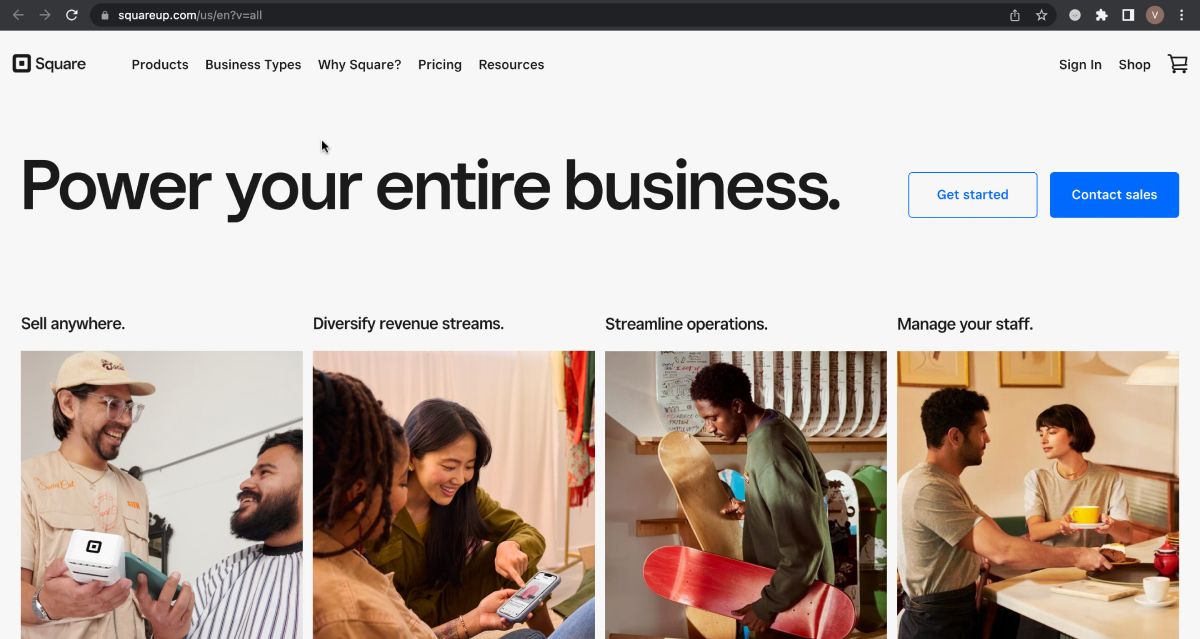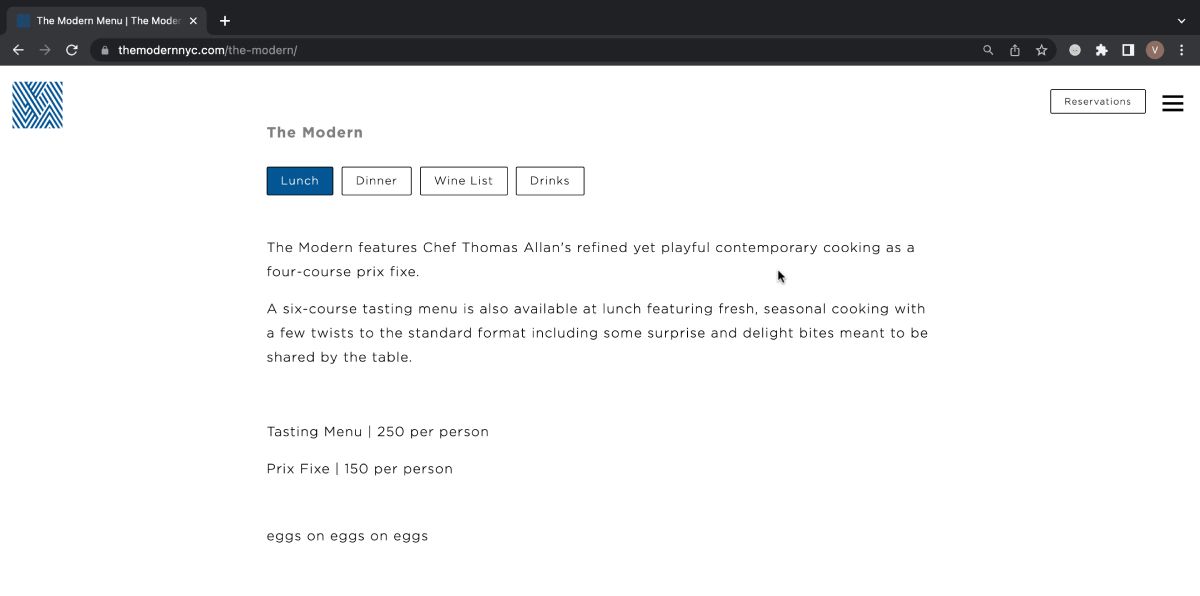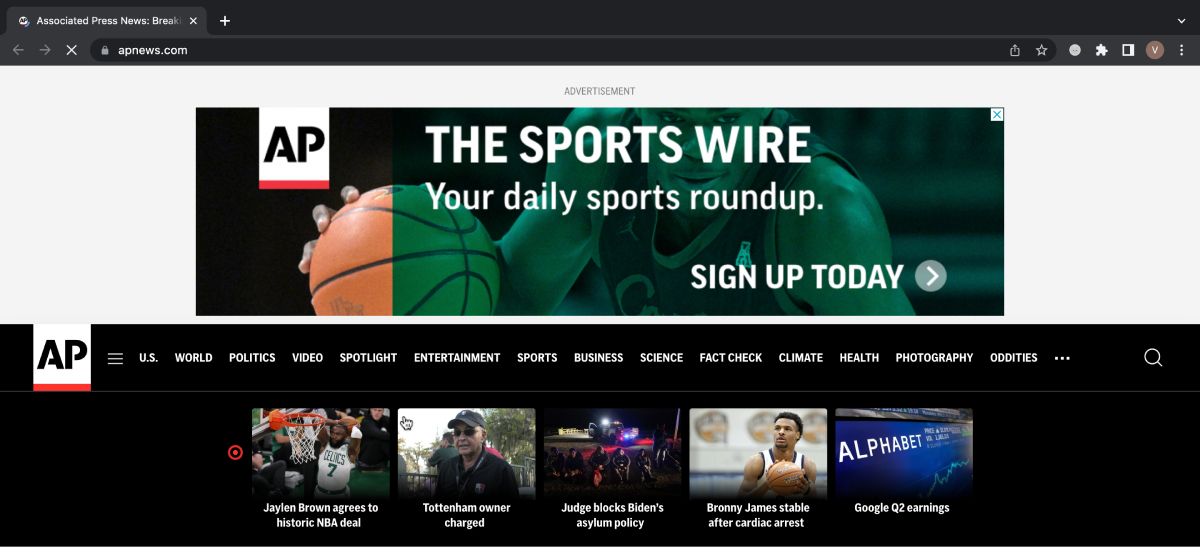SOCIAL
6 Things You Can Do if the Domain Name You Want Isn’t Available

Whether you’re setting up a small business or starting a blog, picking the right domain name can help you establish a strong online presence and connect with your target audience. That said, considering how many websites are out there, there’s a good chance that the domain name you want is taken.
The good news is that there are plenty of things you can do to navigate this challenge and find a domain name that’s right for your brand. Here are a few options you might want to consider.
1. Use a Different Extension
In the past, you typically had to pick between a .com and .org domain name extension (also called TLD). But there are numerous alternative TLDs available now, ranging from the more practical .info and .tech options to adventurous ones like .guru, .cafe, and even .ninja!
These alternative options give you the opportunity to create a more impactful and distinct domain name that tells your target audience what you do. What’s more, an alternative domain name extension won’t hurt your SEO efforts or search presence.
So, for instance, if you want the domain name “YourFavoriteFlorist” with a .com TLD, but that is unavailable, you could instead use “YourFavorite.florist.”
Here’s an example of a yoga studio that has the .yoga extension! The name catches your attention and reflects the brand’s specialization.
2. Experiment With Synonyms
If you’re not set on purchasing a specific domain name, consider using synonyms of words that you would like in the name. By substituting even just one word with another, you’ll be able to create a domain name that still communicates the essence of what your website is about.
For instance, say you want to set up a website with articles for first-time gardeners, and your ideal domain name is “GreenBackyard” with a .com TLD. If this domain name is unavailable, you could look up synonyms for either of the two words that make up the domain name. A few potential options that you could consider include “GreenGardens” or “EvergreenBackyard.”
Using the right synonyms may, in fact, improve upon your original domain name idea while still aligning with your vision for your website.
3. Extend the Name
If you’re unable to find an available domain name, adding a word before or after your ideal domain name can make it a unique option. This approach will also ensure that the meaning and essence of your domain name remain intact.
So, for instance, if you want to set up a technology blog with the name “TechConnect,” but you find that the corresponding domain name is unavailable, you could change the domain name to “MyTechConnect.”
This is, in fact, a strategy that even larger businesses use. Take Square, for example; the company’s domain name is “SquareUp” with a .com TLD.
If you decide to do this, make sure that the domain name you choose is not too complex or lengthy, since this could affect the memorability of your website’s name.
4. Incorporate Your Region Name in the Domain
If you’re setting up a website for your small business that caters to a primarily local audience, consider adding the name of your city, town, or country to the domain name.
In addition to not being too different from your ideal domain name choice, this can also help you market your services or products to a specific market.
You’ll see that the restaurant The Modern, which is located in New York City, has the location of the city added to its domain name.
Using the name of the city in the domain name lends a sense of local relevance, making it easier for the restaurant’s potential customers to find it online.
Alternatively, if you don’t want to include a location in your domain name, you could consider using a country code TLD.
This means if you’re in the UK, you could use .uk as the ccTLD. Similarly, if you reside in Germany, you could use .de. Before you do this, make sure to check whether domain names with ccTLDs are popular in your country.
5. Use Acronyms
If you’ve already settled on a name for your business and find that a corresponding domain name isn’t available, consider using an acronym of your brand name. For instance, if the name of your business is “Content Speak Digital,” try using “CSDigital” as the domain name with different TLDs until you find one that you like.
Not only will this allow you to settle on a domain name you like, but it will also create a more concise URL, which can make it significantly easier for your target audience to find you online.
You can see that the renowned news agency The Associated Press uses this strategy.
6. Assert Your Legal Rights if You’re the Trademark Owner
If you already own a business, you’d likely prefer to use its name as the domain name. In this case, you should use a domain registrar to check if the name is available. If you discover that someone else is using the domain name, you may want to explore the option of filing a lawsuit.
But keep in mind that filing a lawsuit can be a lengthy and complex process, so you should consult an attorney who specializes in this line of work. The attorney can help answer your questions and allow you to easily navigate the legal landscape.
Picking the Best Domain Name
While there’s no such thing as a perfect domain name, it’s important that you pick one that aligns with your brand and is easy to remember.
Keep in mind that if the domain name you want is already trademarked and used by another entity, it’s best to avoid picking a name that’s too similar to the one that already exists. In this case, it might be best to just go back to the drawing board and list potential domain names you wouldn’t mind using.
So, before you choose a domain name, make sure to explore different strategies that can help you come up with a few good options. Additionally, it’s important that you familiarize yourself with domain scams that are common at present, so you don’t fall victim to any of them.
SOCIAL
Snapchat Explores New Messaging Retention Feature: A Game-Changer or Risky Move?

In a recent announcement, Snapchat revealed a groundbreaking update that challenges its traditional design ethos. The platform is experimenting with an option that allows users to defy the 24-hour auto-delete rule, a feature synonymous with Snapchat’s ephemeral messaging model.
The proposed change aims to introduce a “Never delete” option in messaging retention settings, aligning Snapchat more closely with conventional messaging apps. While this move may blur Snapchat’s distinctive selling point, Snap appears convinced of its necessity.
According to Snap, the decision stems from user feedback and a commitment to innovation based on user needs. The company aims to provide greater flexibility and control over conversations, catering to the preferences of its community.
Currently undergoing trials in select markets, the new feature empowers users to adjust retention settings on a conversation-by-conversation basis. Flexibility remains paramount, with participants able to modify settings within chats and receive in-chat notifications to ensure transparency.
Snapchat underscores that the default auto-delete feature will persist, reinforcing its design philosophy centered on ephemerality. However, with the app gaining traction as a primary messaging platform, the option offers users a means to preserve longer chat histories.
The update marks a pivotal moment for Snapchat, renowned for its disappearing message premise, especially popular among younger demographics. Retaining this focus has been pivotal to Snapchat’s identity, but the shift suggests a broader strategy aimed at diversifying its user base.
This strategy may appeal particularly to older demographics, potentially extending Snapchat’s relevance as users age. By emulating features of conventional messaging platforms, Snapchat seeks to enhance its appeal and broaden its reach.
Yet, the introduction of message retention poses questions about Snapchat’s uniqueness. While addressing user demands, the risk of diluting Snapchat’s distinctiveness looms large.
As Snapchat ventures into uncharted territory, the outcome of this experiment remains uncertain. Will message retention propel Snapchat to new heights, or will it compromise the platform’s uniqueness?
Only time will tell.
SOCIAL
Catering to specific audience boosts your business, says accountant turned coach

While it is tempting to try to appeal to a broad audience, the founder of alcohol-free coaching service Just the Tonic, Sandra Parker, believes the best thing you can do for your business is focus on your niche. Here’s how she did just that.
When running a business, reaching out to as many clients as possible can be tempting. But it also risks making your marketing “too generic,” warns Sandra Parker, the founder of Just The Tonic Coaching.
“From the very start of my business, I knew exactly who I could help and who I couldn’t,” Parker told My Biggest Lessons.
Parker struggled with alcohol dependence as a young professional. Today, her business targets high-achieving individuals who face challenges similar to those she had early in her career.
“I understand their frustrations, I understand their fears, and I understand their coping mechanisms and the stories they’re telling themselves,” Parker said. “Because of that, I’m able to market very effectively, to speak in a language that they understand, and am able to reach them.”Â
“I believe that it’s really important that you know exactly who your customer or your client is, and you target them, and you resist the temptation to make your marketing too generic to try and reach everyone,” she explained.
“If you speak specifically to your target clients, you will reach them, and I believe that’s the way that you’re going to be more successful.
Watch the video for more of Sandra Parker’s biggest lessons.
SOCIAL
Instagram Tests Live-Stream Games to Enhance Engagement

Instagram’s testing out some new options to help spice up your live-streams in the app, with some live broadcasters now able to select a game that they can play with viewers in-stream.
As you can see in these example screens, posted by Ahmed Ghanem, some creators now have the option to play either “This or That”, a question and answer prompt that you can share with your viewers, or “Trivia”, to generate more engagement within your IG live-streams.
That could be a simple way to spark more conversation and interaction, which could then lead into further engagement opportunities from your live audience.
Meta’s been exploring more ways to make live-streaming a bigger consideration for IG creators, with a view to live-streams potentially catching on with more users.
That includes the gradual expansion of its “Stars” live-stream donation program, giving more creators in more regions a means to accept donations from live-stream viewers, while back in December, Instagram also added some new options to make it easier to go live using third-party tools via desktop PCs.
Live streaming has been a major shift in China, where shopping live-streams, in particular, have led to massive opportunities for streaming platforms. They haven’t caught on in the same way in Western regions, but as TikTok and YouTube look to push live-stream adoption, there is still a chance that they will become a much bigger element in future.
Which is why IG is also trying to stay in touch, and add more ways for its creators to engage via streams. Live-stream games is another element within this, which could make this a better community-building, and potentially sales-driving option.
We’ve asked Instagram for more information on this test, and we’ll update this post if/when we hear back.
-

 PPC6 days ago
PPC6 days ago10 Most Effective Franchise Marketing Strategies
-

 PPC7 days ago
PPC7 days agoBiggest Trends, Challenges, & Strategies for Success
-

 SEARCHENGINES7 days ago
SEARCHENGINES7 days agoGoogle Needs Very Few Links To Rank Pages; Links Are Less Important
-

 SEO7 days ago
SEO7 days agoHow to Become an SEO Lead (10 Tips That Advanced My Career)
-

 SEARCHENGINES5 days ago
SEARCHENGINES5 days agoGoogle Won’t Change The 301 Signals For Ranking & SEO
-
![Astra Theme Coupon 2024 (Apr) [40% Discount, Save $400] Astra Pricing Plans on discounts](https://articles.entireweb.com/wp-content/uploads/2024/04/1713797772_611_Astra-Theme-Coupon-2024-Apr-40-Discount-Save-400-400x240.png)
![Astra Theme Coupon 2024 (Apr) [40% Discount, Save $400] Astra Pricing Plans on discounts](https://articles.entireweb.com/wp-content/uploads/2024/04/1713797772_611_Astra-Theme-Coupon-2024-Apr-40-Discount-Save-400-80x80.png) WORDPRESS7 days ago
WORDPRESS7 days agoAstra Theme Coupon 2024 (Apr) [40% Discount, Save $400]
-

 SEARCHENGINES6 days ago
SEARCHENGINES6 days agoGoogle Again Says Ignore Link Spam Especially To 404 Pages
-

 SEO4 days ago
SEO4 days agobrightonSEO Live Blog
















